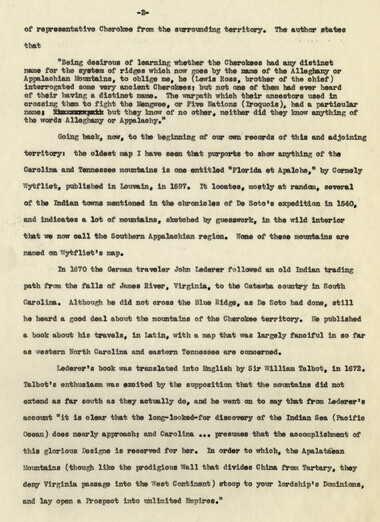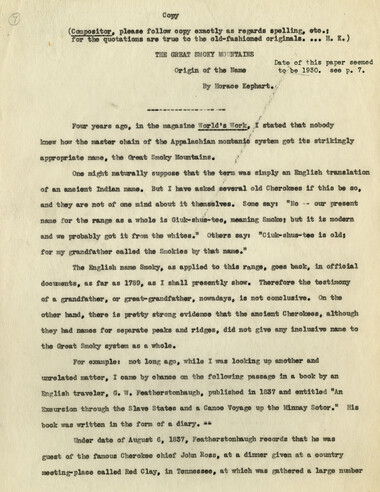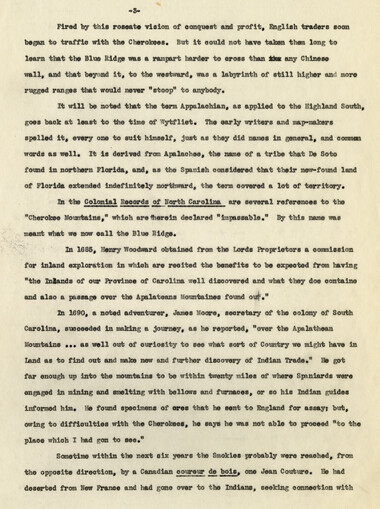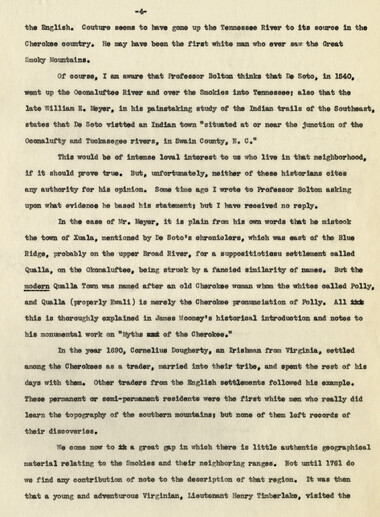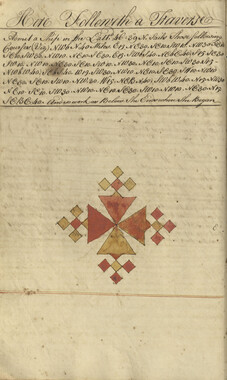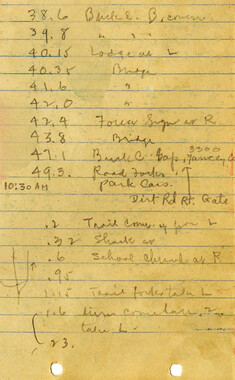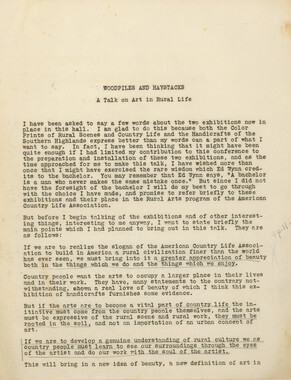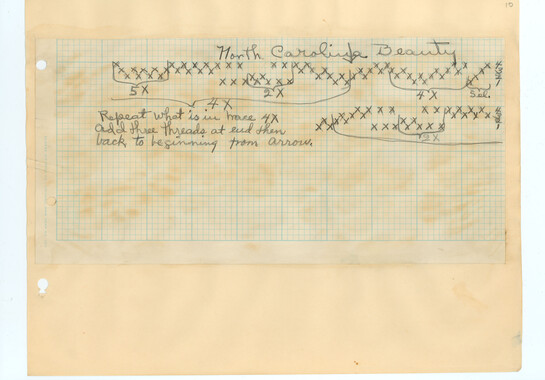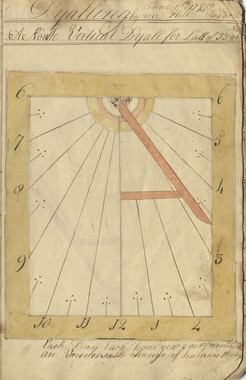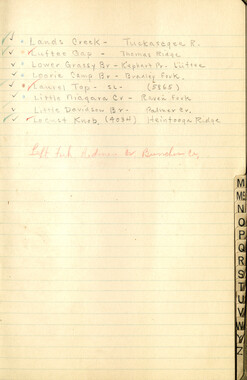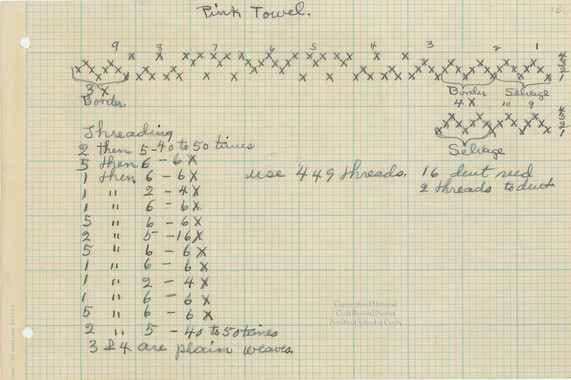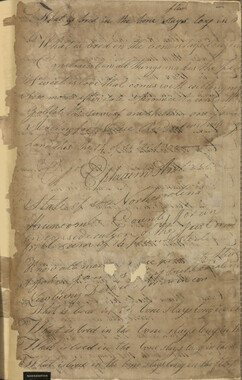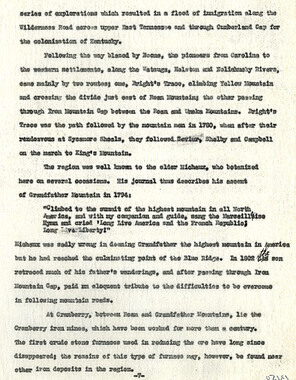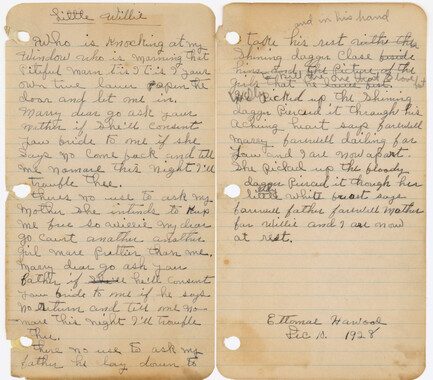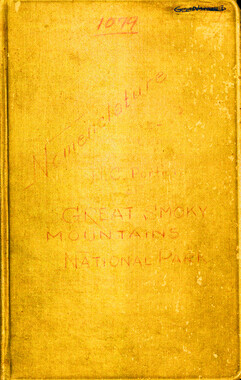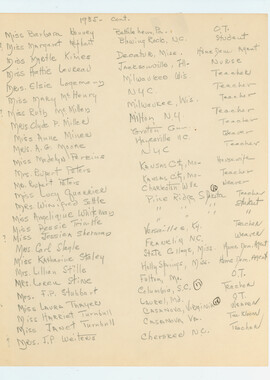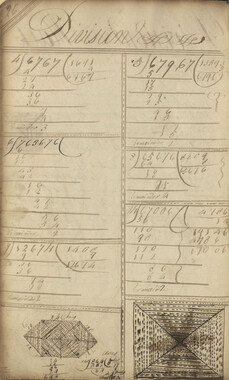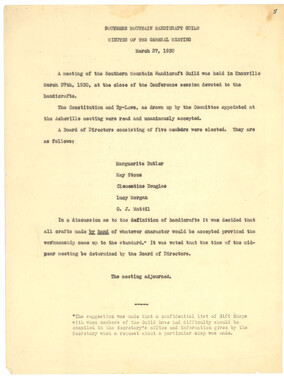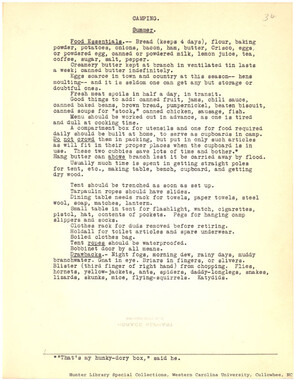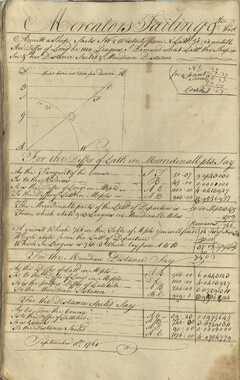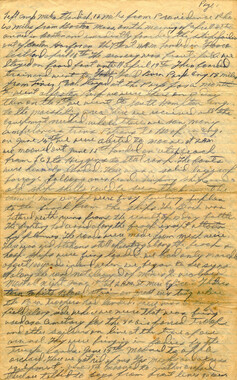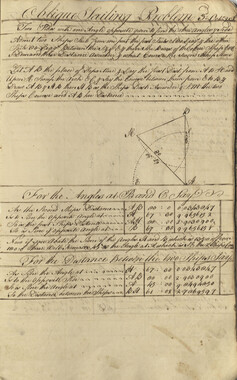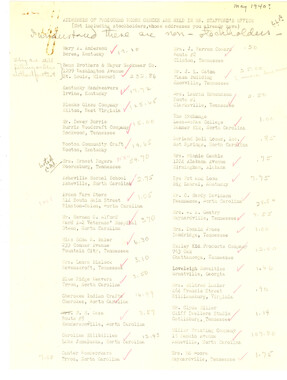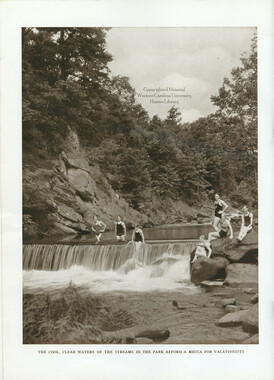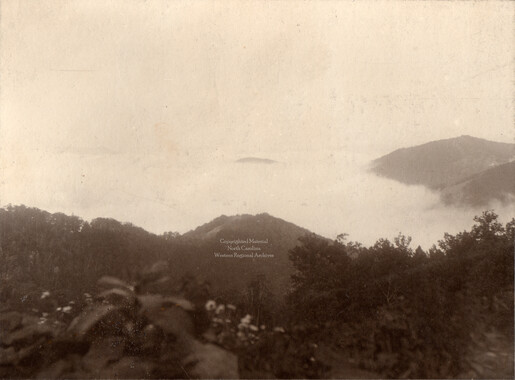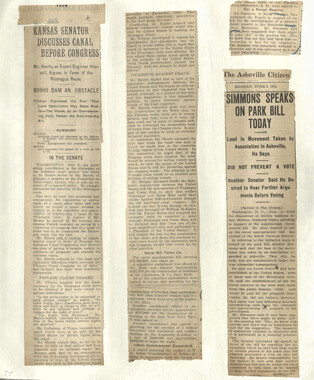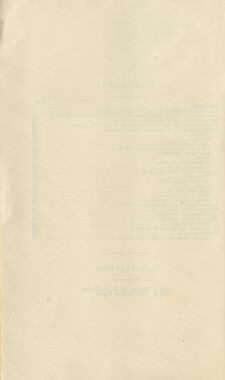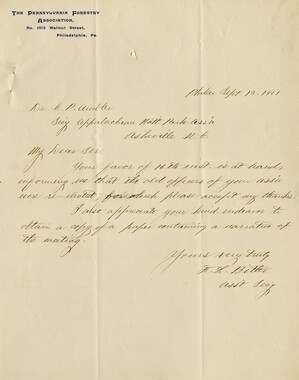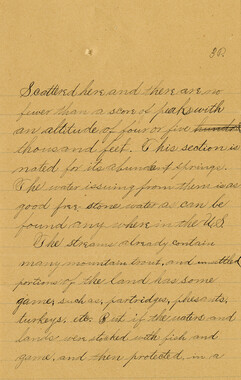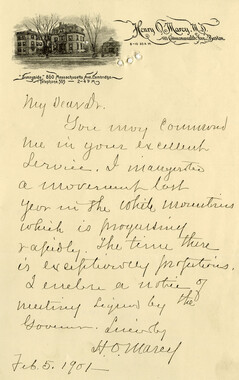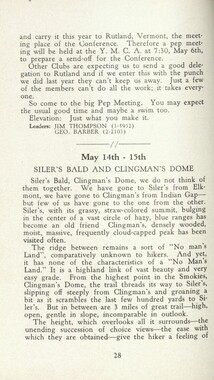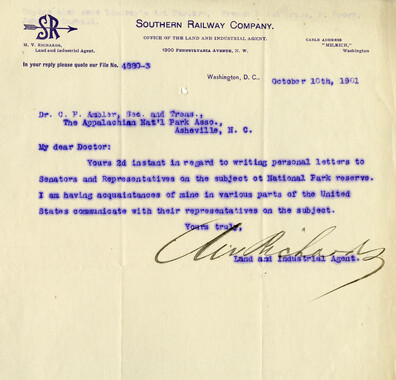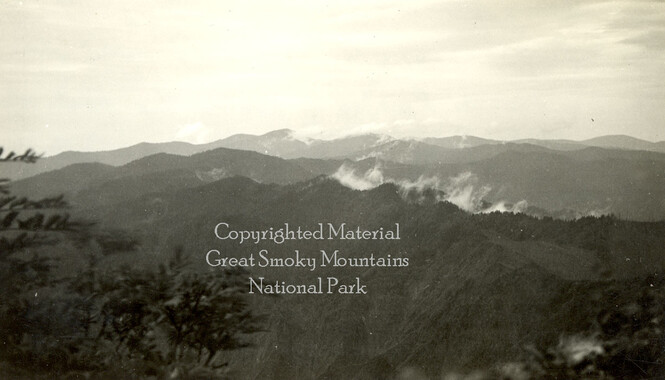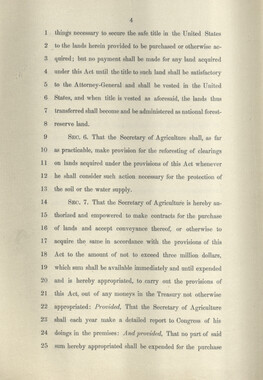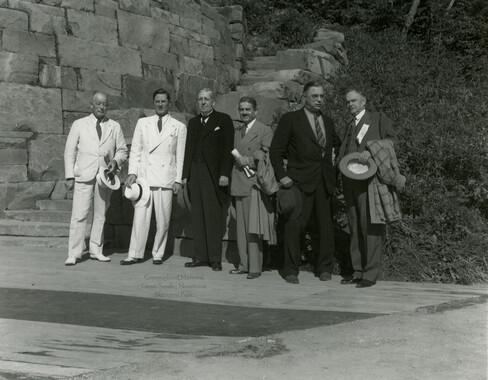Western Carolina University (17)
View all
- Canton Champion Fibre Company (586)
- Cherokee Traditions (61)
- Civil War in Southern Appalachia (165)
- Craft Revival (438)
- Great Smoky Mountains - A Park for America (654)
- Highlights from Western Carolina University (208)
- Horace Kephart (677)
- Journeys Through Jackson (154)
- LGBTQIA+ Archive of Jackson County (68)
- Oral Histories of Western North Carolina (301)
- Picturing Appalachia (20)
- Travel Western North Carolina (27)
- Western Carolina University: Making Memories (154)
- Western Carolina University Publications (2283)
- Western Carolina University Restricted Electronic Theses and Dissertations (146)
- Western North Carolina Regional Maps (4)
- World War II in Southern Appalachia (113)
- Stories of Mountain Folk (0)
- Western Carolina University Fine Art Museum Vitreograph Collection (0)
- Western Carolina University Herbarium (0)
University of North Carolina Asheville (3)
View all
- Forestry in Western North Carolina (8)
- Grove Park Inn Photograph Collection (3)
- Picturing Asheville and Western North Carolina (64)
- Faces of Asheville (0)
- Isaiah Rice Photograph Collection (0)
- Morse Family Chimney Rock Park Collection (0)
- Allanstand Cottage Industries (21)
- Appalachian National Park Association (52)
- Brasstown Carvers (1)
- Carver, George Washington, 1864?-1943 (26)
- Cathey, Joseph, 1803-1874 (1)
- Champion Fibre Company (233)
- Champion Paper and Fibre Company (297)
- Cherokee Indian Fair Association (16)
- Edmonston, Thomas Benton, 1842-1907 (7)
- Ensley, A. L. (Abraham Lincoln), 1865-1948 (1)
- Goodrich, Frances Louisa (23)
- Heard, Marian Gladys (60)
- Kephart, Calvin, 1883-1969 (15)
- Kephart, Horace, 1862-1931 (296)
- Kephart, Laura, 1862-1954 (39)
- Masa, George, 1881-1933 (20)
- Niggli, Josephina, 1910-1983 (10)
- North Carolina Park Commission (105)
- Osborne, Kezia Stradley (9)
- Owens, Samuel Robert, 1918-1995 (11)
- Penland Weavers and Potters (12)
- Schenck, Carl Alwin, 1868-1955 (1)
- Sherrill's Photography Studio (1)
- Southern Highland Handicraft Guild (126)
- Southern Highlanders, Inc. (71)
- Stearns, I. K. (2)
- Thompson, James Edward, 1880-1976 (2)
- United States. Indian Arts and Crafts Board (23)
- Vance, Zebulon Baird, 1830-1894 (1)
- Weaver, Zebulon, 1872-1948 (58)
- Western Carolina College (229)
- Western Carolina Teachers College (281)
- Western Carolina University (1792)
- Western Carolina University. Mountain Heritage Center (14)
- Whitman, Walt, 1819-1892 (10)
- Wilburn, Hiram Coleman, 1880-1967 (63)
- Williams, Isadora (3)
- Bennett, Kelly, 1890-1974 (0)
- Berry, Walter (0)
- Cain, Doreyl Ammons (0)
- Cherokee Language Program (0)
- Crittenden, Lorraine (0)
- Crowe, Amanda (0)
- Fromer, Irving Rhodes, 1913-1994 (0)
- George Butz (BFS 1907) (0)
- Grant, George Alexander, 1891-1964 (0)
- Laney, Gideon Thomas, 1889-1976 (0)
- McElhinney, William Julian, 1896-1953 (0)
- Rhodes, Judy (0)
- Roberts, Vivienne (0)
- Roth, Albert, 1890-1974 (0)
- Smith, Edward Clark (0)
- Stalcup, Jesse Bryson (0)
- USFS (0)
- Appalachian Region, Southern (577)
- Asheville (N.C.) (23)
- Avery County (N.C.) (9)
- Blount County (Tenn.) (6)
- Buncombe County (N.C.) (348)
- Cherokee County (N.C.) (93)
- Clay County (N.C.) (20)
- Graham County (N.C.) (30)
- Great Smoky Mountains National Park (N.C. and Tenn.) (98)
- Haywood County (N.C.) (822)
- Henderson County (N.C.) (21)
- Jackson County (N.C.) (2941)
- Knox County (Tenn.) (7)
- Knoxville (Tenn.) (3)
- Macon County (N.C.) (67)
- Madison County (N.C.) (23)
- McDowell County (N.C.) (7)
- Mitchell County (N.C.) (62)
- Polk County (N.C.) (14)
- Qualla Boundary (82)
- Rutherford County (N.C.) (3)
- Swain County (N.C.) (203)
- Transylvania County (N.C.) (7)
- Watauga County (N.C.) (7)
- Waynesville (N.C.) (3)
- Yancey County (N.C.) (4)
- Lake Santeetlah (N.C.) (0)
- Albums (books) (1)
- Articles (1)
- Artifacts (object Genre) (9)
- Bibliographies (1)
- Biography (general Genre) (2)
- Cards (information Artifacts) (31)
- Clippings (information Artifacts) (185)
- Envelopes (73)
- Fiction (general Genre) (4)
- Financial Records (12)
- Fliers (printed Matter) (66)
- Glass Plate Negatives (1)
- Guidebooks (2)
- Interviews (377)
- Land Surveys (102)
- Letters (correspondence) (1010)
- Manuscripts (documents) (590)
- Maps (documents) (57)
- Memorandums (25)
- Minutes (administrative Records) (59)
- Negatives (photographs) (1)
- Newsletters (1284)
- Newspapers (2)
- Occupation Currency (1)
- Periodicals (193)
- Personal Narratives (7)
- Photographs (120)
- Poetry (4)
- Portraits (39)
- Postcards (18)
- Programs (documents) (151)
- Publications (documents) (2148)
- Questionnaires (65)
- Scrapbooks (4)
- Sheet Music (2)
- Songs (musical Compositions) (2)
- Sound Recordings (338)
- Speeches (documents) (15)
- Transcripts (322)
- Video Recordings (physical Artifacts) (17)
- Aerial Photographs (0)
- Aerial Views (0)
- Crafts (art Genres) (0)
- Depictions (visual Works) (0)
- Design Drawings (0)
- Drawings (visual Works) (0)
- Facsimiles (reproductions) (0)
- Internegatives (0)
- Paintings (visual Works) (0)
- Pen And Ink Drawings (0)
- Plans (maps) (0)
- Slides (photographs) (0)
- Specimens (0)
- Text Messages (0)
- Tintypes (photographs) (0)
- Vitreographs (0)
- A.L. Ensley Collection (1)
- Appalachian Industrial School Records (6)
- Appalachian National Park Association Records (195)
- C.W. Slagle Collection (20)
- Canton Area Historical Museum (555)
- Cataloochee History Project (60)
- Cherokee Studies Collection (4)
- George Masa Collection (59)
- Hiram C. Wilburn Papers (1)
- Historic Photographs Collection (1)
- Horace Kephart Collection (664)
- I. D. Blumenthal Collection (4)
- Isadora Williams Collection (4)
- Jim Thompson Collection (2)
- John C. Campbell Folk School Records (55)
- John Parris Collection (1)
- Love Family Papers (11)
- Major Wiley Parris Civil War Letters (3)
- McFee-Misemer Civil War Letters (34)
- Mountain Heritage Center Collection (2)
- Norburn - Robertson - Thomson Families Collection (21)
- Pre-Guild Collection (2)
- Qualla Arts and Crafts Mutual Collection (12)
- Samuel Robert Owens Collection (76)
- Sherrill Studio Photo Collection (3)
- The Reporter, Western Carolina University (510)
- Venoy and Elizabeth Reed Collection (16)
- WCU Gender and Sexuality Oral History Project (32)
- WCU Mountain Heritage Center Oral Histories (20)
- WCU Oral History Collection - Mountain People, Mountain Lives (71)
- WCU Students Newspapers Collection (1744)
- Western North Carolina Tomorrow Black Oral History Project (69)
- Zebulon Weaver Collection (107)
- Axley-Meroney Collection (0)
- Bayard Wootten Photograph Collection (0)
- Bethel Rural Community Organization Collection (0)
- Blumer Collection (0)
- Carlos C. Campbell Collection (0)
- Daisy Dame Photograph Album (0)
- Daniel Boone VI Collection (0)
- Doris Ulmann Photograph Collection (0)
- Elizabeth H. Lasley Collection (0)
- Elizabeth Woolworth Szold Fleharty Collection (0)
- Frank Fry Collection (0)
- Gideon Laney Collection (0)
- Hazel Scarborough Collection (0)
- Humbard Collection (0)
- Hunter and Weaver Families Collection (0)
- Jesse Bryson Stalcup Collection (0)
- John B. Battle Collection (0)
- Judaculla Rock project (0)
- Kelly Bennett Collection (0)
- Map Collection (0)
- Pauline Hood Collection (0)
- R.A. Romanes Collection (0)
- Rosser H. Taylor Collection (0)
- Sara Madison Collection (0)
- Smoky Mountains Hiking Club Collection (0)
- Stories of Mountain Folk - Radio Programs (0)
- William Williams Stringfield Collection (0)
- African Americans (102)
- Appalachian Trail (8)
- Artisans (127)
- Cherokee art (20)
- Cherokee artists -- North Carolina (10)
- Cherokee language (2)
- Cherokee pottery (6)
- Cherokee women (21)
- Church buildings (5)
- Civilian Conservation Corps (U.S.) (6)
- College student newspapers and periodicals (1827)
- Dams (3)
- Dance (56)
- Education (83)
- Floods (22)
- Folk music (59)
- Forced removal, 1813-1903 (2)
- Forest conservation (56)
- Forests and forestry (30)
- Gender nonconformity (4)
- Great Smoky Mountains National Park (N.C. and Tenn.) (70)
- Hunting (13)
- Logging (8)
- Maps (30)
- Mines and mineral resources (5)
- North Carolina -- Maps (2)
- Paper industry (6)
- Postcards (6)
- Pottery (1)
- Railroad trains (2)
- Rural electrification -- North Carolina, Western (2)
- School integration -- Southern States (2)
- Segregation -- North Carolina, Western (5)
- Slavery (5)
- Sports (163)
- Storytelling (8)
- Weaving -- Appalachian Region, Southern (83)
- Wood-carving -- Appalachian Region, Southern (44)
- World War, 1939-1945 (144)
- Landscape photography (0)
- Waterfalls -- Great Smoky Mountains (N.C. and Tenn.) (0)
Origin of the name: Great Smoky Mountains
Item
Item’s are ‘child’ level descriptions to ‘parent’ objects, (e.g. one page of a whole book).
-
-
-a- of representative Cherokee from the surrounding territory. The author states that "Being desirous of learning whether the Cherokees had any distinct name for the system of ridges which now goes by the name of the Alleghany or Appalachian Mountains, to oblige me, he (Lewis Ross, brother of the chief) interrogated souse very ancient Cherokees? hut not one of them had ever heard of their having a distinct name. The warpath whieh their ancestors used in crossing them to fight the Mengwce, or Five nations (Iroquois), had a particular name* xtsBWsaaKpefck hut they know of no other, neither did they know anything of the words Alleghany or Appalachy.** Going back, now, to the beginning of our own records of this and adjoining territory? the oldest map 1 have seen that purports to show anything of the Carolina and Tennessee mountains is one entitled "Florida et Apaleh©,,, by Comely Wyfcflist, published in Louvain* in 16t7» It locates, mostly at random, several of the Indian towns mentioned in the ohronielas of D» Soto*s expedition in 1540, and indicates a lot of mountains, sketched by guesswork, in the wild interior that we nmr eall the Southern Appalachian region. Hone of these mountains are named onWyfcfliet's map. la 1870 the German traveler John Lederer followed an old Indian trading path from the falls of James liver, Virginia, to the Catawba country in South Carolina. Although he did not cross the Blue Ridge, as Be Soto had done, still he heard a good deal about the mountains of the Cherokee territory. He published a book about his travels, in Latin, with a map that was largely fanciful in so far as western Worth Carolina and eastern Tennessee are concerned. Lederer*s book was translated into English by Sir William Talbot, in 1672, Talbot's enthusiasm was excited by the supposition that the mountains did not ©xtend as far south as they actually do, and he went on to say that from Lederer*s account "it is clear that the long-looked-for discovery of the Indian Sea (Pacific Ocean) does nearly approach? and Carolina ... presumes that the accomplishment of this glorious Dcslgne is reserved for her. In order to which, the Apalatae-aa Mountains (though like the prodigious Wall that divides China from Tartary, they deny Virginia passage into the West Continent) stoop to your lordship's Dominions, and lay open a frospeet into unlimited Empires."
Object
Object’s are ‘parent’ level descriptions to ‘children’ items, (e.g. a book with pages).
-
This original manuscript, written by Horace Kephart around 1930, concerns the origin of the name “Great Smoky Mountains.” Horace Kephart (1862-1931) was noted naturalist, woodsman, journalist, and author and promoter of the Great Smoky Mountains National Park. Throughout his life, Kephart wrote many articles supporting the Great Smoky Mountains National Park as well as the books “Camping and Woodcraft” and “Our Southern Highlanders.”
-
